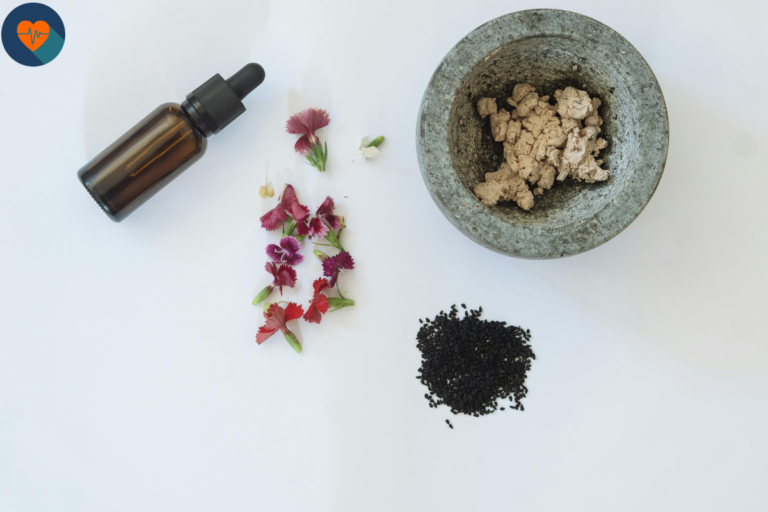Chronic pain buries into the bones and emotional psyche of millions. For patients searching for an alternative to conventional pain medications, homeopathy offers a multitude of remedies that not only have minimum side effects but are also natural. From everyday aches and pains to chronic conditions, this article will describe how homeopathic remedies can help with pain relief.
Table of Contents
Natural Relief Homeopathic Remedies for Pain

Pain: Understanding It and Its Impact
What is Pain? Common Physical and Emotional Triggers
Pain is not just a feeling but a deep-seated message of the body in a plight to voice that something is wrong. The physical causes are pretty obvious: injury, inflammation, degeneration, and so on. In addition, insidious physical unease may be the manifestation of such emotional triggers as stress, anxiety, and unresolved trauma. Emotional or psychic stress initially builds up if muscles clench, joints ache, and before long, a self-perpetuating cycle of discomfort is achieved. Such triggers need acknowledgment as the first step toward pain management.
Why Consider Natural Pain Relief?
The drawbacks of conventional pain relievers are that they contain several undesirable side effects. In particular, when NSAIDs are taken over a long period, they can have general adverse effects on the stomach, and liver strain, and can even lead to addiction. On the other hand, natural pain alleviation is softer on the body, such as with homeopathy. Not only does homeopathy tend to work in harmony with the body’s own self-healing tendencies, but it also tries to alleviate pain without the many adverse effects caused by so many pharmaceuticals. Yet another added advantage of natural methods is that they focus more on the actual cause of a symptom rather than masking it.
How Homeopathy Can Support Pain Management
Homeopathy is unique in that it looks at pain not as an individual entity but as a symptom of a deeper imbalance. Since homeopathy treats one’s pain about one’s entire health picture – including all states of mind and emotion – it hopes to resolve pain at the root. This makes treatment more tailored to the person, and therefore equally successful for both chronic and acute pain.
Introduction to Homeopathy
Homeopathy: Principles and Practices
Homeopathy stands on two tenets, mainly: “like cures like” and the use of ultra-diluted substances. The first postulates that a given substance that produces symptoms in a healthy individual will, in minute quantities, treat comparable symptoms in a sick person. Another principle is the preparation of medicine by diluting the effective agent to the extent that only an energetic pattern of it remains to allegedly start off the natural healing process of a body.
How Homeopathic Remedies Work for Pain Relief
Homeopathic treatment works by pushing the body to heal itself. If the remedy is recognized by the body, it’s then thought to activate its own resources in the battle against pain’s underlying cause. Whether the problem is aching joints or damaged nerve endings, a homeopathic remedy suits a fine-tuned exact replica of each symptom experienced by the individual.
Key Advantages of Homeopathic Treatments Over Conventional Options
Homeopathy is, in most instances, gentler, and not as invasive as conventional drugs. Remedies lack artificial chemicals and work without breaking down the body’s processes. Besides this, they are not addictive and can hence be administered over long periods without any risk. Another reason homeopathic treatments stand out is their personalization, guaranteeing effectiveness through targeted relief of the physical and emotional sensations of pain.
Types of Pain Homeopathy Can Help Address
Chronic Pain: Common Types and Causes
Chronic pains, often emanating from arthritis, fibromyalgia, or long-term injuries, could be debilitating. Homeopathy can help overcome the symptoms of chronic pain, including inflammation, stiffness, and muscle fatigue, which the remedies aim to reduce both intensity and frequency of flare-ups.
Acute Pain: How to Manage Sudden Discomfort Naturally
Acute pain, such as from sprains, bruises, or sudden headaches, can be treated by homeopathy. It offers remedies to hasten the body’s response to an injury with rapid calming of swelling and nerve irritation.
Pain Caused by Inflammation and Injury
Inflammation is among the most common causes of pain, especially after trauma or overexertion. Homeopathy has remedies for reducing swelling, calming irritated tissues, and protecting against further injury.
Psychic Pain and Its Physical Consequences
At times, emotional pains may be converted into physical symptoms such as headaches, clenched muscles, or even indigestion. Homeopathic remedies soothe the nervous system and eliminate these physical signs of the stressors emotionally to bring balance into the person’s emotions.
Some of the Most Common Pains and Their Homeopathic Remedies
Arnica Montana: Perfect for Muscle Pain and Bruises
Arnica Montana is generally used for swelling, bruising, and muscle soreness. It is usually the first medication indicated in cases of injury or overexertion of any part of the body.
Rhus Toxicodendron: Relieving Joint Pain and Stiffness
This homeopathic drug is specifically used for patients with joint pain that is worse from not being active. Rhus Tox eliminates stiffness and pain, which is relieved by movement; hence, it is highly effective for arthritis patients.
Bryonia: Sharp, Pain Worse with
It is excellent for sharp, throbbing pains that are invariably worse from motion. Common indications include simple headaches, joint pain, and even chest pain due to respiratory conditions.
Hypericum Perforatum: For Nerve Pain and Injuries
Hypericum, also known as St. John’s Wort, is probably the most common treatment for traumatic injuries that also involve nerve pains, lacerations, burns, and sciatica. Especially useful in shooting or stabbing nerve pains.
Magnesia Phosphorica: Relieving Cramps and Spasms
This is just the medicine for muscle cramps, spasms, and menstrual cramps. Known as “homeopathic aspirin,” Magnesia Phosphorica relieves muscle pains and discomforts within a very short period.
Homeopathic Pain Relievers for Specific Conditions
Arthritis Pain: Homeopathic Medicines for Keeping Joints Flexible
Homeopathic medicines such as Rhus Tox and Causticum help soothe the pain caused due to arthritis by reducing joint stiffness and inflammation and increasing flexibility.
Headaches-Migraines: Taking Control with Homeopathy
Remedies such as Belladonna and Nux Vomica are in common use to ease migraine symptoms: intolerance of light, nausea, and a throbbing headache.
Menstrual Cramp and Menopausal Relief
Homeopathic relief for menstrual cramps and hot flashes helps to balance hormonal changes with remedies such as Sepia and Pulsatilla and reduces discomfort.
Natural Relief for Back Pain and Sciatica
In the case of back pain and sciatica, remedies like Hypericum and Colocynth deal with pain caused by nerves and, therefore, reduce pain and inflammation.
Relieving Pain from Injury and Post-Exercise Soreness
Arnica and Ruta Graveolens are very effective for soreness from physical exertion. Both reduce muscular fatigue and allow quicker recovery.
How to Safely Use Homeopathic Remedies
Selecting the Appropriate Remedy for Your Pain Type
Each homeopathic remedy is for specific types of pains and symptoms. A homeopathy professional will make sure you get the right remedy.
Dosage Instructions for Safety and Efficiency
Homeopathic remedies are highly individualized; recommended dosages are very important. Overuse diminishes the effectiveness, and underuse may lead to minimal relief.
When to Seek a Homeopathic Practitioner
While homeopathy can be quite safe, a practitioner will be able to advise you on the proper potency and remedy for conditions that are chronic or complicated.
Benefits of Combining Homeopathy with Other Natural Modalities
Homeopathy and Mindfulness/Meditation
Other practices like mindfulness and meditation support homeopathy by lessening stress-one of the more common pain triggers. Combined, they provide a comprehensive approach to managing pain.
Dietary Suggestions to Complement Natural Pain Management
Certain foods can act as anti-inflammatories. A diet consisting of omega-3 fatty acids, antioxidants, and essential vitamins helps an individual to respond well to homeopathic medicine.
Exercise in Natural Pain Management
Exercise can serve to help improve circulation, reduce stiffness, and enhance mood important components in pain management. Recovery can be enhanced through the addition of exercise to one’s homeopathic treatment.
Adding Physical Therapy to Your Homeopathic Treatment: Benefits
In this case, physical therapy would build up strength in the muscles, and increase flexibility, while homeopathy tackles the latent pain. All combined, they work together in unison for recovery.
Frequently Asked Questions
Are Homeopathic Remedies Safe to Use Across All Age Brackets?
Homeopathic remedies are non-invasive and can safely be used by children, adults, and seniors alike, furthering their versatility in natural pain relief.
Can Homeopathy Help with Chronic Pain Conditions?
Yes, homeopathy can provide long-term relief of chronic conditions by addressing the basic imbalances that contribute to pain.
How Long Does It Take for Homeopathic Remedies to Work?
This depends upon each individual and the nature of the condition. You may feel relieved from an acute pain condition within hours. In contrast, in some cases of chronic pain management, it may take several weeks.
Conclusion
Embracing a Natural Approach to Pain Management with Homeopathy
Homeopathy added to the pain management routine secures a soft, sure way to relief. By attending to the physical and emotional aspects of pain, homeopathic remedies invite more profound depths of healing. Allow yourself to move into this natural approach to find lasting relief and renewed wellness.
For readers interested in natural and holistic approaches to wellness, our Alternative Health section offers a range of articles on topics from herbal remedies to integrative therapies. Explore more to support your health journey with evidence-based insights.

